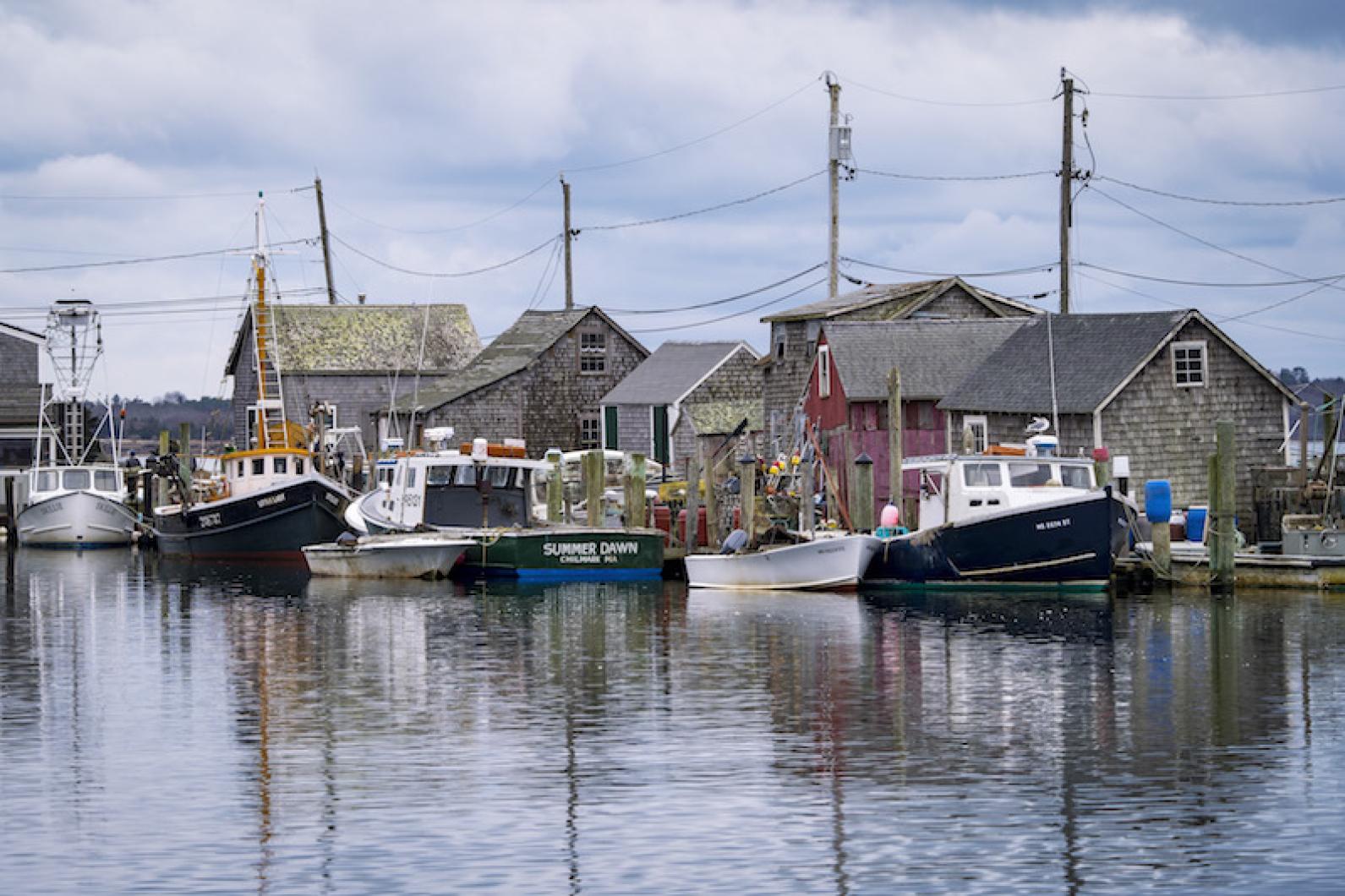After the closure of Menemsha’s only wholesale seafood market last year, the Martha’s Vineyard Fishermen’s Preservation Trust has taken steps on multiple fronts to fill the void, raising money and signing a lease with the town in an effort to make a Menemsha-based seafood wholesaler a reality once more.
An Island nonprofit dedicated to preserving the Vineyard’s small-boat fishing heritage, the trust has spent the past few months formulating plans to open a Menemsha-based wholesale market called the Martha’s Vineyard Sustainable Seafood Collaborative at the location of the former Menemsha Fish House, which closed last March and never reopened.
Those plans took a big leap forward this week when the Chilmark selectmen and parks and recreation department signed a lease with the trust for the bulkhead property at a meeting on Tuesday.
The decision by the selectmen marks the close of a months-long process to find a new tenant for the former Fish House lot in Menemsha.
“The lot will be used by the Fishermen’s Preservation Trust to develop a wholesale food market there to serve Menemsha and keep our commercial fishing port operational as well,” selectman Jim Malkin said during the meeting. “It is a very sound and hopefully very long-lived enterprise to use that space and to keep the character of Menemsha as we would like it to be kept.”
But nothing is possible without money. In tandem with the new lease, the trust has launched an urgent, $500,000 capital campaign that they hope to fulfill by the end of February in order to become fully operational by April of this year.
In an interview Thursday, preservation trust executive director Dr. Shelley Edmundson said the organization had already raised $286,000 through 55 donors since launching the campaign last week, with a Chilmark resident matching all donations between $25 and $2,500.
Ms. Edmundson said reaching $400,000 would trigger the purchasing of necessary start-up equipment and allow the wholesaler to be operational for its first season. The hope, she said, is that the business would be self-sustaining thereafter, providing an Island-based wholesaler for more than 100 fishermen.
“The Fish House was a really important outlet for fishermen to sell their catch. The retail markets can only absorb so much,” Ms. Edmundson said. “Our concern is that if we don’t step in now, especially after the pandemic and other market closures, it will be the next weight put on fishermen and force them to switch from working on the water, like they want to.”
The waterside property at the end of the commercial fishing bulkhead in Menemsha has been unoccupied since fall, when the fish house — one of the Island’s largest wholesale seafood distributors — shuttered as a result of the pandemic, leaving a hole in an industry already strained by the pandemic and raising concerns about the future of the town’s commercial waterfront and local fishing fleet.
The town of Chilmark, which owns the parcel of land on which the fish house facility sits, issued a request for proposals (RFP) in December, with the requirement that the lot be used to support Menemsha’s local fishing industry. After a review process, selectmen voted Tuesday to lease the property to the trust, which was the sole respondent to the RFP.
The new market will closely follow the fish house model, representatives from the trust’s board of directors said. The enterprise will buy thousands of pounds worth of catch from the Island’s local fisherman each year and process the seafood at their facility before distributing it to local markets, restaurants and off-Island buyers.
The operation hopes to stabilize local fishing businesses and greatly increase the availability of locally sourced seafood, the trust wrote on its website. The facility will also use surplus seafood to make meals for Island families in need.
“Being an Island, there is a critical need for the Island’s community fishermen to have an outlet to sell their catch,” the trust wrote in a statement of purpose last week. “Without any intervention, this market closure will almost certainly lead to the decline of our community fishing industry.”
The nonprofit has recently named Peter Lambos, former general manager at the Fish House, as the seafood collaborative’s director of operations, according to a page on the organization’s website.
Renovations and repairs to the aging fish house facilities will be among the greater costs required to get the market on its feet, as well as purchasing new equipment and permits for buying and processing seafood, leaders said. Staffing the market will also contribute to costs.
Ms. Edmundson was confident that operating a fishing wholesaler would not stretch the nonprofit trust’s mission, which is to preserve and support working waterfronts, including Menemsha. In fact, she said it was an essential part of that mission.
“That slow trickle of losing people who have the skills and desire to work on the water . . . we lose that part of our working waterfront that makes it diverse and real,” Ms. Edmundson said. “We’re stepping in to keep this market open.”
Donations to the capital campaign can be made through the trust’s wesbite at https://www.mvfishermenspreservationtrust.org/mv-sustainable-seafood-collaborativ.






Comments (1)
Comments
Comment policy »